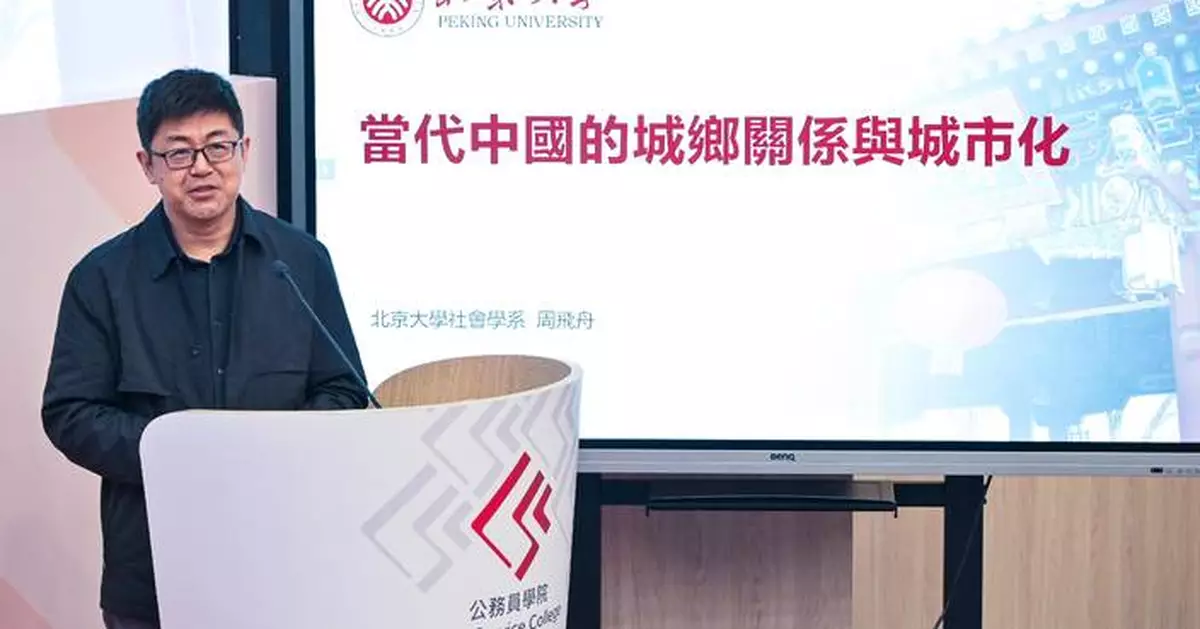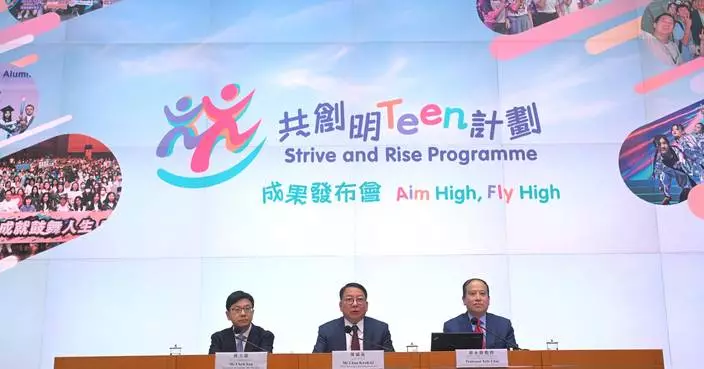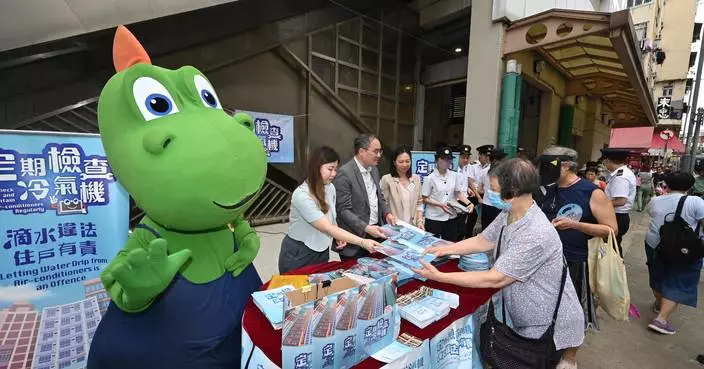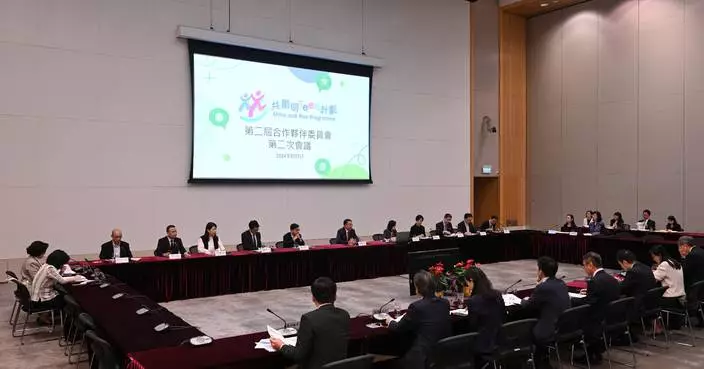Exploring china's urban-rural dynamics: a fascinating lecture by civil service college and peking university
The Civil Service College (CSC), in collaboration with the Institute for Hong Kong and Macau Studies, Peking University, launched an in-depth programme on "one country, two systems" and contemporary China. As part of the programme, a lecture on the topic of "Urban-rural Relationship and Urbanisation in Contemporary China" was delivered by the Dean of the Department of Sociology of Peking University, Professor Zhou Feizhou, at the CSC today (April 23).
The country upholds the philosophy of people-centred development, acting on the principle that a city should be built by and for its people. It emphasises the need to maintain a people-centred approach, focusing on the public's needs and prioritising liveability in urban development.
Addressing the lecture, the Head of the CSC, Mr Oscar Kwok, said that the Government of the Hong Kong Special Administrative Region has long been upholding the country's people-centred governing philosophy, emphasising serving the public in a pragmatic manner to make Hong Kong a better place for living and working. The mission of the CSC is to strengthen training to build a civil-service team that is patriotic, loves Hong Kong, has good morals and integrity, and is competent and people-oriented. The CSC has infused the people-first and "one government" service ethos into various programmes, building a service culture driven by the needs of the people and the overall interests of the country and Hong Kong, which exemplifies the implementation of the country's governance philosophy and gives full play to the power and value of "patriots administering Hong Kong".
Around 70 civil servants at the rank of Directorate Pay Scale Point 1 and 2 attended the programme. In addition, about 90 politically appointed officials and other directorate officers enrolled and sat in on the lecture via video conferencing.
The programme was organised to further strengthen training for senior officials and directorate civil servants. It consists of 12 monthly lectures covering a wide range of topics, such as the Communist Party of China and contemporary China, socialism with Chinese characteristics, the theory and practice of "one country, two systems", as well as developments in contemporary Chinese society, economy, national defence, technology, and more. Distinguished scholars from the Mainland will deliver the programme and engage in in-depth discussions with participants.
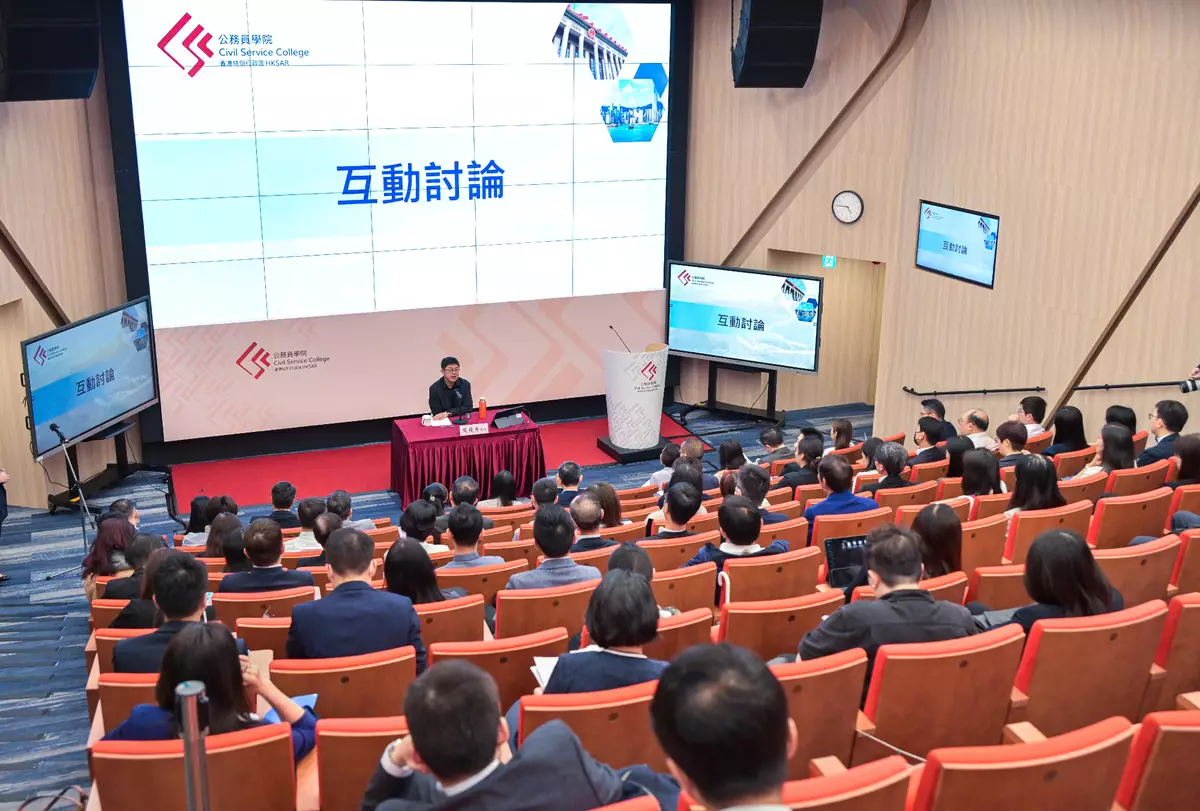
Civil Service College and Peking University's joint programme holds lecture on "Urban-rural Relationship and Urbanisation in Contemporary China" Source: HKSAR Government Press Releases

Civil Service College and Peking University's joint programme holds lecture on "Urban-rural Relationship and Urbanisation in Contemporary China" Source: HKSAR Government Press Releases
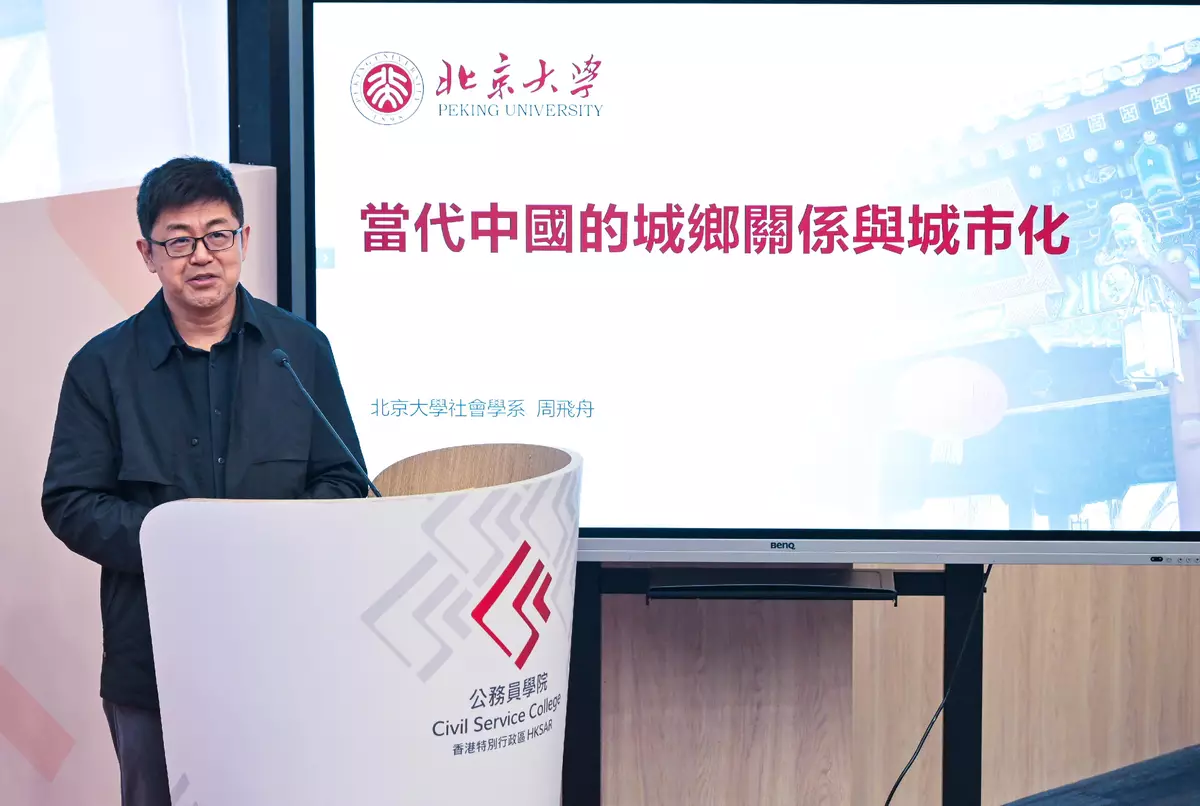
Civil Service College and Peking University's joint programme holds lecture on "Urban-rural Relationship and Urbanisation in Contemporary China" Source: HKSAR Government Press Releases


